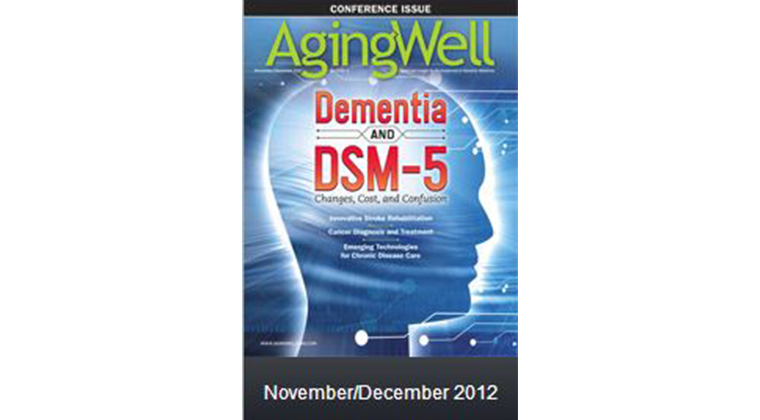Home > Dementia with Lewy bodies receives formal recognition and classification
 Although DLB has been “known about” as a diagnosis for almost 20 years, progress in spreading this knowledge has been hampered by it lacking official recognition in the formal systems which are used by healthcare and research funders. One of the two most influential systems is the Diagnostic and Statistical Manual of Mental Disorders (DSM) published by the American Psychiatric Association. The DSM provides a common language and standard criteria for the classification of mental disorder sand is used in the United States and to various degrees around the world. It is used or relied upon by clinicians, researchers, psychiatric drug regulation agencies, health insurance companies, pharmaceutical companies, the legal system, and policy makers. DSM-IV and its various revisions which have operated since year 2000 did not include DLB because at that time it was still an emerging condition, not uniformly accepted or recognised.
Although DLB has been “known about” as a diagnosis for almost 20 years, progress in spreading this knowledge has been hampered by it lacking official recognition in the formal systems which are used by healthcare and research funders. One of the two most influential systems is the Diagnostic and Statistical Manual of Mental Disorders (DSM) published by the American Psychiatric Association. The DSM provides a common language and standard criteria for the classification of mental disorder sand is used in the United States and to various degrees around the world. It is used or relied upon by clinicians, researchers, psychiatric drug regulation agencies, health insurance companies, pharmaceutical companies, the legal system, and policy makers. DSM-IV and its various revisions which have operated since year 2000 did not include DLB because at that time it was still an emerging condition, not uniformly accepted or recognised.
DSM-5 (the fifth edition) which was published on May 18, 2013, includes DLB for the first time, referring to it as “Major or Mild Neurogocognitive Disorder with Lewy Bodies” and incorporating all of the features and diagnostic criteria by which clinicians across the world diagnose DLB. Separate criteria are also given for “Major or Mild Neurocognitive Disorder due to Parkinson’s Disease “.
Professor Ian McKeith, President of the Lewy Body Society said, “The recognition of Lewy Body Dementias in DSM-V is a major step forward for everyone involved with the disorder. In the past, every interaction with care providers, funders, research bodies or regulatory agencies has required us to justify the existence and importance of the Lewy body dementias. Now that we have been recognised in the official listings as being a common and important condition we can expect to see much greater awareness, interest and investment in DLB. We will be working to ensure that the other major diagnostic system, the World Health Organisation’s International Classification of Diseases (ICD) will have similar recommendations in its forthcoming revision. Universal recognition and acceptance of the best ways to diagnose and manage DLB must be to the benefit of patients and families around the globe. The Lewy Body Society is contributing to this process by its own awareness raising activities and by supporting the clinical and research communities.”
To receive regular news updates, resources, events and breakthroughs in the fight against Lewy body dementia please enter your email address….
We will only contact you in relation to latest news & updates that we think will be of interest to you. We will not disclose your information to any third party and you can unsubscribe from our database at any time.
© 2023 The Lewy body Society. Registered Charity No: 1114579 (England and Wales) and SC047044 (Scotland). Website by ATTAIN